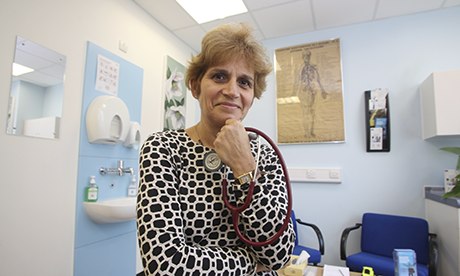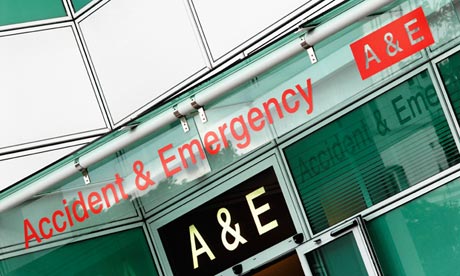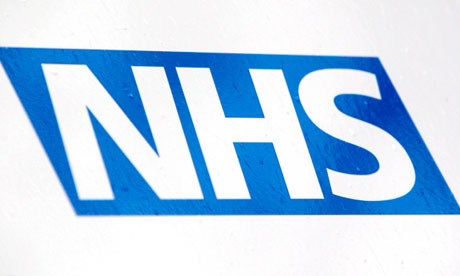The number of A&E units failing to meet the government’s four-hour target has almost trebled in a year.
A total of 39 departments failed to meet the target of seeing 95% of patients within four hours between July and September, according to NHS England data. This compares with 14 units during the same period last year.
The target covers all A&E types, including minor injury units and walk-in centres, and the number discharged, admitted or transferred within four hours of arrival.
The NHS as a whole across England is still hitting the target, with 96% of all patients seen within the time between July and September. But this is only because some units perform way above the target, with some consistently hitting 100%.
In August, David Cameron announced £500m of extra funding over the next two years to support A&E.
The cash is intended to help units through the winter, cutting delays and reducing the number of admissions.
The shadow health secretary, Andy Burnham, said: “David Cameron’s ill-judged re-organisation has placed the NHS in the danger zone. The government cannot continue to ignore the warnings. Until ministers face up to the fundamental causes – the collapse of social care and frontline job losses – the NHS will continue to struggle.
“This is further proof you can’t trust David Cameron with the NHS. We can’t have another year in the NHS like the last one – he needs to urgently get a grip.”


